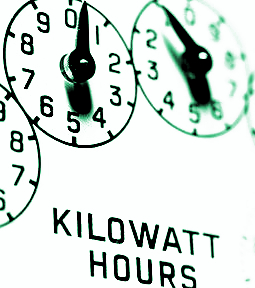Tariff trial reviewed
 A new study has reviewed the impact of electricity tariff structure changes on vulnerable households.
A new study has reviewed the impact of electricity tariff structure changes on vulnerable households.
The report from the Bankwest Curtin Economics Centre examined the experiences of vulnerable households, including larger families and those with lower incomes or receiving concessions, who participated in a pricing research pilot by Horizon Power during the 2016-17 summer period.
It found two-thirds of vulnerable customers were financially better off under the trialled alternative energy pricing product.
Report author Dr Tom Houghton, from the School of Economics, Finance and Property at Curtin University, said power plans, where customers are charged partly for their peak capacity, had the potential to smooth energy costs over the course of a year by charging in a similar way to mobile phone plans.
“Some households in northern Western Australia reported spending in excess of $7,000 every year on energy, for a variety of reasons including inefficient air conditioning systems, inadequate housing insulation or a lack of information about efficient use of energy and appliances,” Dr Houghton said.
The pricing plan is one option to help ensure the price of electricity is cost-reflective – a challenge energy utilities all over the world are grappling with amid increasing demand on electricity systems during peak periods and the rapid growth of renewables, including solar.
In Horizon’s Power Ahead trial, each of 407 participants were allocated a peak energy target to be used during peak periods, with customers being offered incentives to reduce their energy use during these peak times.
No customer was worse off as they were still on their normal tariff but received incentives for changing usage.
“Once study participants were informed about the ways they could reduce their energy use during peak usage times, 25 per cent of participants were able to drop their peak usage by around 15 per cent, mostly due to adjusting or limiting the use of air conditioning,” Dr Houghton said.
“Some customers reported having to make trade-offs around which appliances to use during peak periods, with half of vulnerable customers indicating they turned off air conditioners when notified that their energy use was too high. This raises the risk of customers facing undue discomfort in their efforts to stay within their plan.”
BCEC Director Professor Alan Duncan said it was essential any changes to electricity pricing should leave no customers behind.
“When developing new electricity pricing structures, utilities must explore options to ensure vulnerable households do not become further disadvantaged,” Professor Duncan said.
“The use of subsidies or rebates to compensate the most vulnerable in our society could be a place to start, but I’d encourage utilities to examine further the reasons why some vulnerable customers do fair worse from the introduction of programs aimed at reducing their financial stress, such as power plans and bill smoothing.”







 Print
Print